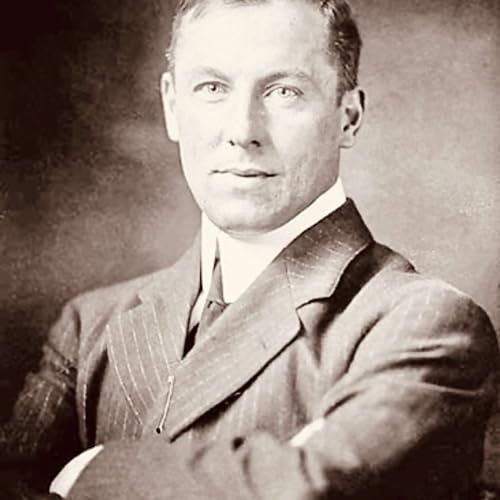
Wild West Podcast
Failed to add items
Add to basket failed.
Add to Wish List failed.
Remove from Wish List failed.
Follow podcast failed
Unfollow podcast failed
-
Narrated by:
About this listen
Welcome to the Wild West podcast, where fact and legend merge. We present the true accounts of individuals who settled in towns built out of hunger for money, regulated by fast guns, who walked on both sides of the law, patrolling, investing in, and regulating the brothels, saloons, and gambling houses. These are stories of the men who made the history of the Old West come alive - bringing with them the birth of legends, brought to order by a six-gun and laid to rest with their boots on. Join us as we take you back in history to the legends of the Wild West. You can support our show by subscribing to Exclusive access to premium content at Wild West Podcast + https://www.buzzsprout.com/64094/subscribe or just buy us a cup of coffee at https://buymeacoffee.com/wildwestpodcast
-
 Dec 16 20259 mins
Dec 16 20259 minsFailed to add items
Sorry, we are unable to add the item because your shopping cart is already at capacity.Add to basket failed.
Please try again laterAdd to Wish List failed.
Please try again laterRemove from Wish List failed.
Please try again laterFollow podcast failed
Unfollow podcast failed
-
 Dec 5 202530 mins
Dec 5 202530 minsFailed to add items
Sorry, we are unable to add the item because your shopping cart is already at capacity.Add to basket failed.
Please try again laterAdd to Wish List failed.
Please try again laterRemove from Wish List failed.
Please try again laterFollow podcast failed
Unfollow podcast failed
-
 Dec 3 20254 mins
Dec 3 20254 minsFailed to add items
Sorry, we are unable to add the item because your shopping cart is already at capacity.Add to basket failed.
Please try again laterAdd to Wish List failed.
Please try again laterRemove from Wish List failed.
Please try again laterFollow podcast failed
Unfollow podcast failed


